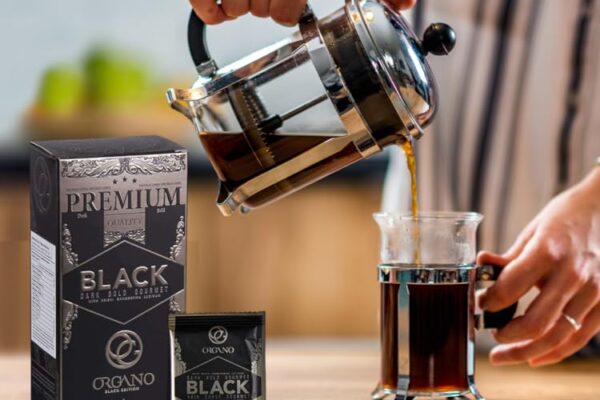Blog
Is Mushroom Coffee Low FODMAP?
Mushroom coffee has become a popular addition to many diets for its health perks, including boosting focus and immunity. However, some may be wondering if this trendy beverage fits into a low FODMAP diet. A diet that helps people with irritable bowel syndrome (IBS) manage symptoms, including bloating, stomach pain and altered bowel habits. The diet restricts foods that can trigger digestive distress.
The drink combines ground coffee beans with extracts from medicinal mushrooms, like chaga, lion’s mane and reishi. The result is a caffeinated beverage that’s lower in acidity than traditional brew and often less caffeine, as well. Proponents say it can help those with digestive issues, such as IBS and SIBO, enjoy the ritual of a morning cup of coffee without suffering from the side effects.
But is mushroom coffee low fodmap? Ultimately, it depends on the specific blend and add-ins used. Most mushroom coffee products contain a combination of regular coffee beans and various medicinal mushrooms, such as reishi, lion’s mane and chaga, all known for their health benefits. However, it can be difficult to know how each individual component may impact digestive health.
Some mushrooms can be high in FODMAPs, which are fermentable oligosaccharides, disaccharides, monosaccharides and polyols. Some common FODMAPs found in these types of mushrooms include lactulose, galactooligosaccharides and mannitol. However, many studies show that medicinal mushrooms, such as reishi, are not typically high in FODMAPs and have been shown to support gastrointestinal health.
Mushrooms have also been shown to have anti-inflammatory properties and are rich in antioxidants, which can support immune function. As such, the inclusion of medicinal mushrooms in mushroom coffee can be a great way to support gut health and immune system function.
For these reasons, the mushroom content in most blends of mushroom coffee is likely safe for most. The key is to choose a product that does not use high FODMAP ingredients, such as milk and sweeteners, in the formulation. This will ensure that the drink does not aggravate symptoms for those who are trying to follow a low FODMAP diet for IBS or SIBO.
If you’re interested in trying mushroom coffee, it is recommended that you speak with a registered dietitian to get personalized advice about how the beverage can fit into your unique diet and symptom profile. Keep a food and symptom journal and experiment with different blends and add-ins to find a formula that works for you.
For those who are unable to tolerate mushroom coffee, a supplement that contains just the mushrooms, without the addition of coffee beans, is a good option. Mushrooms like reishi are a common ingredient in this type of supplement, and it is possible to take the extract as a standalone supplement without causing gastrointestinal symptoms. To do this, a capsule or powder containing reishi is the best option. This can be purchased from many online retailers.



